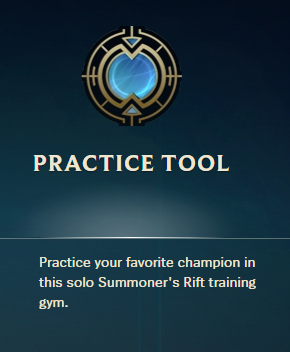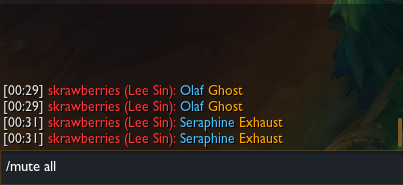How to Prevent a Loss Streak in LoL
Ever wonder why you can’t stop a loss streak in League of Legends, or what caused it in the first place? In this article we discuss some common causes and some possible solutions you can explore!
Ever wonder why you can’t stop a loss streak in League of Legends, or what caused it in the first place? In this article we discuss some common causes and some possible solutions you can explore!
There are several reasons why a loss streak can happen in League of Legends, but the one thing the loss streaks have in common is that the player is likely telling themselves the next game will be different. If nothing is being done differently to change the outcome of that next match, why should it be any different? This guide will help identify what is causing the loss streak, provide insight to develop strategies to stop them from continuing, and provide tips to prevent them from even occurring in the first place.
Obviously, every loss streak starts with the same thing: a loss. Why that loss happened, will be different from game to game, but what is consistent in all of them, is the player. The first task to identifying the cause is to take responsibility for what you contributed (or did not) to the loss. There is always something that could have been done by each player that can make the difference in the game and identifying that thing will help players improve tremendously.
I know, some readers may suggest that some losses are inevitable because of an AFK teammate, or a trolling player. While this is possible, before you blame the game on a teammate, see if your teammate was as bad or "troll" as you initially thought while in the game. Players often wonder why some players aren't banned for their feeding, when their teammates weren't feeding at all, but just having a bad game, as everyone does.
The problem is that in the heat of the moment in the game, when the win is still within reach, their poor performance feels that much worse and clouds judgement leading players to believe the worst in each other. So first, take the time to quickly review the game, or even just pieces of the game to establish what really happened from a fresh perspective where there is no game on the line, instead you are just watching a video, and pointing out things that went wrong. This process benefits players in two important ways: 1. Seeing the scenario from a different perspective to identify issues in personal play, and 2. Filter out whether the game was lost due to mechanical reasons, or psychological reasons. Chances are, especially in games where players initially think to blame teammates, the reason for the loss has to do with psychology, not how people played the game. The psychology of the solo queue player is the most underrated feature that has the greatest impact on the players ability to improve. Consider a player that blames their teammates for a loss, and proceeds to queue up, and lose again with all new teammates.
What are the odds that this player blames their teammates again for the second loss? Quite high, in fact, an argument could be made that it's almost certain. This is a simple example of the common defense mechanisms of denial and projection. Both defense mechanisms are commonly used in everyday society and League of Legends Solo Queue is no exception. The problem that these players often encounter is that even when confronted with the truth about their denial, they continue denying it because it's easier. The truth is, if every game you lose there is someone to blame other than yourself, the game isn't worth playing. If you truly believe every game is a "coinflip", then don't play. These mentalities don't do you any favors and only encourage you to continue down these trains of thought. The only consistent thing in every game you play is yourself.
What mistakes were made, and how you decide to try and fix them are the bread-and-butter of improvement in any discipline. First, establish whether the cause was an error in gameplay, or a psychological barrier. If it was an error in gameplay, you should be able to identify it in the review after the game and keep that in mind for the next game. Once that is established, finding the appropriate way to deal with the issue is key. Refining the decision making of your games is crucial and will be easiest to build on by reviewing your games.
Some things to keep in mind are the major decisions you made in each game, the reasoning behind the decisions, and in hindsight, whether those decisions worked out or not. For example, a player deciding to pick a mechanically intensive champion when an easier champion could work just as well in the situation. Sometimes, the most important thing is to return to the basics of the game and keep things as simple as possible while you work on specific parts of the game.

If the game was lost due to psychological factors, there is good news and bad news. The good news is that once you have established that your mindset was not optimal for success, you have done the hard part and broken the patterns of denial and projection because you are accepting responsibility. The bad news is that there is more to fix that must be done outside of the game.
Here are some tips for stopping, and preventing loss streaks once you have established that your mindset negatively impacted your game:
Sometimes the best things we can do to reset our mental are to just do nothing at all. Get up, stretch, eat something, do a chore (or don't). The important thing is that you don't allow yourself to dwell on the loss and take the initiative to do something with your time that will not negatively impact you even more.
Knowing when you're tilted is essentially knowing when you're not ready to play another game. It's about accountability and being honest with yourself. In general, if you are still thinking about your previous game, you haven't fully reset your mental. While it is constructive to consider what you did wrong in the previous game to fix it for the next one, it's up to you to decide whether you holding onto that previous game is something that will benefit you, or hurt you.
Knowing when you are tilted, but to reset your mental you need to know why you are tilted. Depending on what is causing the tilt, you will need to reset your mental in different ways. For example, if you are tilted because of your own performance, it's likely best to review the game to understand the decision-making and determine what it is you need to do differently.

The review process is often enough to reset the mental and be more constructive. In situations where someone was rude or offensive to you, it's likely best to do two things: 1. Do something for 10+ minutes that will get your mind off of the toxicity, and 2. Mute chat for the next game to make sure nothing said will reignite that tilted mindset that you just brought yourself out of. Ultimately, the strategy to reset your mental is dependent on your personality. For some people it's as simple as listening to music for a couple minutes. For others, it's simply just best to call it a day and step away from the game for the rest of the day. Unfortunately, some players just don't want to admit that the second fits their personality better, but if it works, it works. That's what matters and that's the strategy you need to abide by to prevent the loss streaks.
The last thing you need is to establish a plan for how you want to approach a play session to avoid loss streaks and get the most out of every game. First, a great way to maximize the quality of your games is to minimize the games you're playing to focus a lot into each game. A common strategy is to play a best-of-three as a play session. In this strategy, you will play a maximum of 3 games. If you win your first two games, you stop and take the win for the play session. If you lose two in a row, stop, and accept the losses. If you're 1-1, then you can decide whether you want to play the deciding game. If you do finish your series with two games, but have time for a third, consider trying something new in normals or practice something you think you can learn from in normals or a different account. Last, it’s essential to take time between games to give yourself a break. A good way to be efficient with your time is to review the game right after you finish, take some notes, and then take a 5-10-minute break for a snack, stretch, etc. Consider that as a reset and indicator to look forward and focus on the upcoming game rather than keeping the previous game in the back of your mind.
Finally, be sure to minimize any outside distractions that will impact your mindset and your quality of your upcoming game. If you feel like you cannot remove yourself from those distractions, it's probably best that you call it quits for now and play again later.
Overall, preventing loss streaks is all about maintaining a balanced mindset, establishing a plan of action for your play session, and identifying the cause of the loss streak. Once those are established, you can adapt to whatever has come up and with some accountability and proactivity, you will minimize the loss streaks you experience and therefore have a much better time climbing!
Do your best and keep asking questions. Good luck, Summoners!